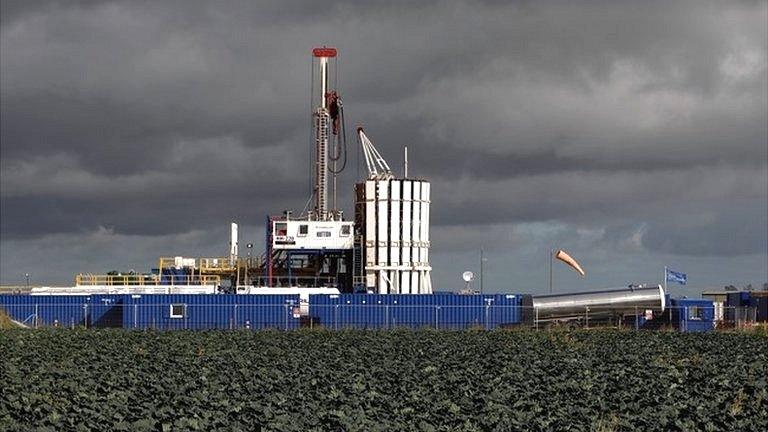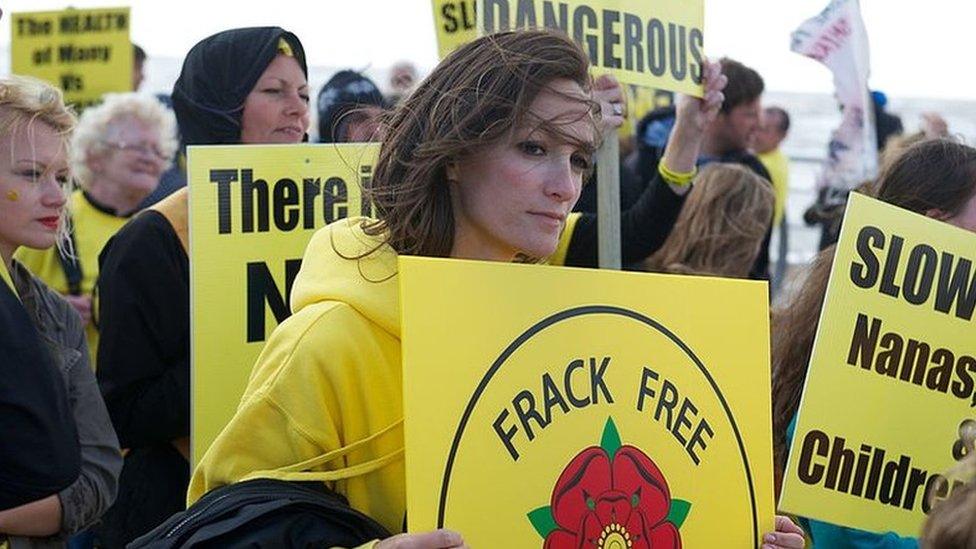Fracking ban: What is the situation in Wales?
- Published
The BBC's David Shukman explains how fracking works
The Scottish government has announced an "effective ban" on fracking - but what is the situation in Wales?
The Welsh Government opposes fracking and a block of the practice - known as a moratorium - has been in place since 2015.
It means councils minded to approve applications for drilling have to refer them to the environment secretary.
But some have argued the Welsh Government does not have the power to stop fracking.
Others have raised concerns ministers could be open to legal challenges, if they refuse to give permission for applications, unless planning guidance is updated.
On Tuesday the Scottish government said an existing moratorium on the technique, which has been in place since 2015, should continue "indefinitely" after public opposition.
In an almost identical situation to that in Scotland, the Welsh Government also announced a moratorium on fracking - hydraulic fracturing of the land to extract any oil or gas - in 2015.
The block, which means councils have to refer planning bids for the drilling to Cardiff Bay, does not apply to applications for exploratory drilling, which has been given permission in the Vale of Glamorgan.
There have been protests against applications for test drilling for gas in both the Vale of Glamorgan and Wrexham.
Like Scotland, the Welsh Government has also extended the block to include underground coal gasification (UCG) - a separate technique used to extract gas from coal seams deep underground.
But some have argued that the moratorium is not the right approach, while some opposition AMs have expressed concerns that the Welsh Government does not yet have the power to block fracking.
The former head of Greenpeace Stephen Tindale says a moratorium on fracking is "not the correct approach"
Currently companies who want to drill for oil and gas have to apply to the UK government for a licence, this then allows them to apply for planning permission from local authorities.
The Wales Act 2017 - which devolves further powers to Cardiff Bay from London - will give the Welsh Government control over fracking once it comes fully into force.
But, with the powers being dripped in, the Welsh Government does not yet in theory have control over the controversial drilling and any applications for licences are still decided by Westminster.
However, in preparation for the powers being devolved the UK government has not awarded any new licences in Wales or Scotland.
In a statement on Tuesday the Welsh Government said it had "repeatedly made clear" its opposition to fracking in Wales.
A spokesman said: "Earlier this year we extended the direction preventing local planning authorities from approving applications for such activities and this now includes underground coal gasification, showing our continued commitment to oppose fracking in Wales."

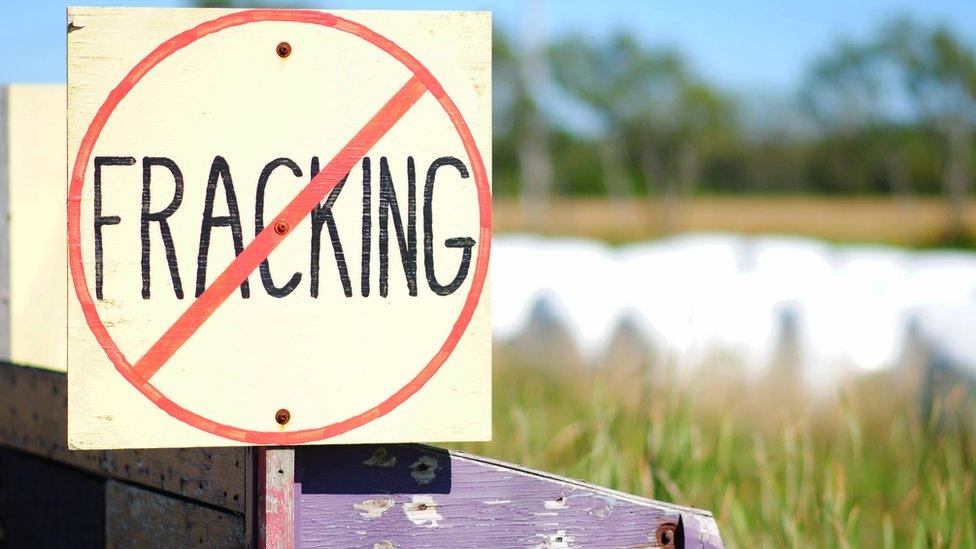
What is fracking and why is it controversial?
Fracking is the process of drilling down into the earth before a high-pressure water mixture is directed at the rock to release the gas inside.
The extensive use of fracking in the US, where it has revolutionised the energy industry, has prompted environmental concerns.
The first is that fracking uses huge amounts of water that must be transported to the fracking site, at significant environmental cost.
The second is the worry that potentially carcinogenic chemicals used may escape and contaminate groundwater around the fracking site.
But the industry suggests fracking of shale gas could contribute significantly to the UK's future energy needs
- Published25 July 2017
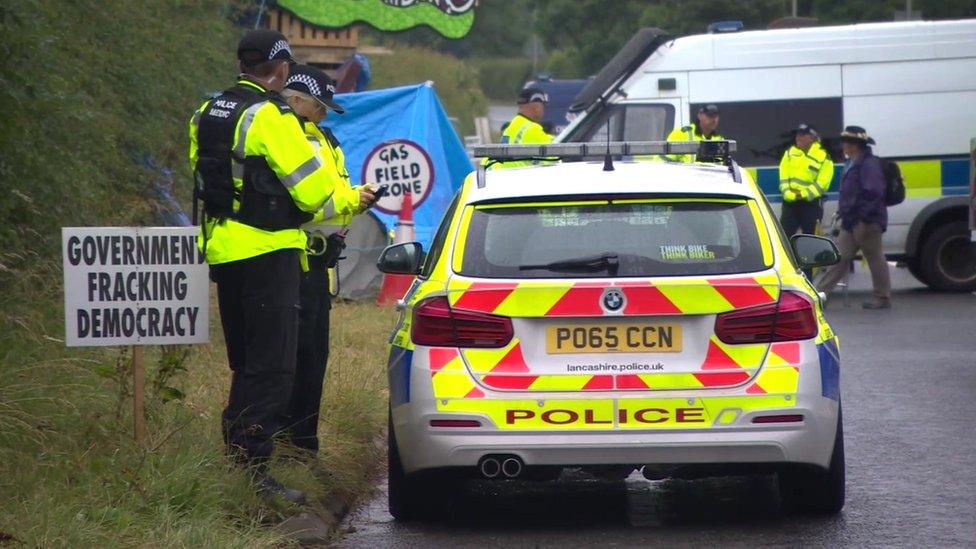
- Published5 September 2015
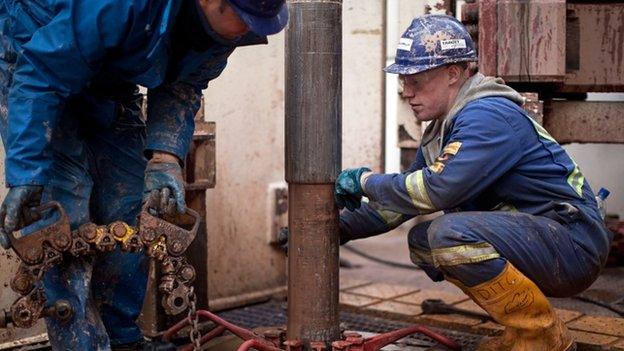
- Published21 September 2017
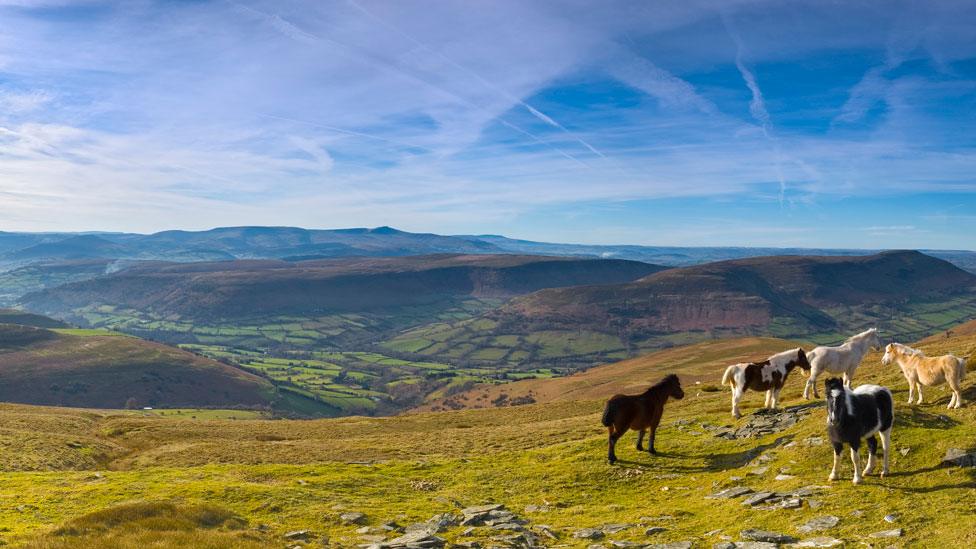
- Published16 June 2014
